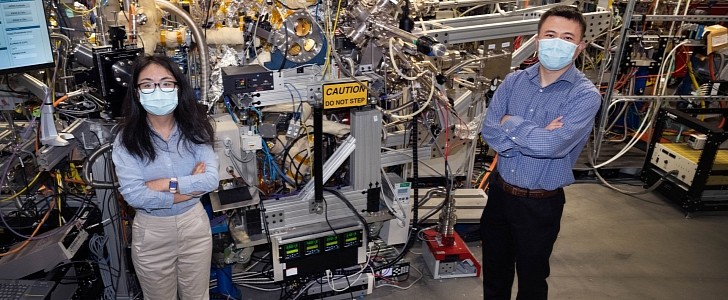Nickel-rich chemistries offer increased energy density in Li-Ion batteries but have cell stability issues. This is especially true when they are charged at high voltages. The scientists discovered a new electrolyte additive that has demonstrated stable cycling even at an ultra-high cut-off voltage of 4.8 V.
Nickel-rich Li-ion batteries offer the highest energy density and performance, but they are prone to rapid degradation when cycled (charged/discharged) at high voltages. This is mainly why it’s recommended to only charge a Li-Ion battery to 80% SoC when you don’t need its full capacity. A team of researchers led by chemists at the U.S. Department of Energy’s (DOE) Brookhaven National Laboratory has discovered that a specially formulated electrolyte allows stable high-voltage cycling of nickel-rich layered cathodes.
The discovery, like many others before, was mostly an accident. At the time, the team researched the use of lithium difluorophosphate (LiPO2F2) to improve the low-temperature performance of batteries. Sha Tan, a co-first author and Ph.D. candidate at Stony Brook University, tried using the additive for high-voltage cycling at room temperature just out of curiosity. That’s when the breakthrough happened, as the additive was found to offer great protection over the cathode, giving excellent cycling performance.
Usually, in nickel-rich Li-ion batteries, particle cracking happens during high-voltage charge-discharge cycles. Another issue with high-voltage charging is what battery specialists call “crosstalk.” Small amounts of transition metals in the cathode dissolve and then migrate through the electrolyte to deposit on the anode. This also leads to battery capacity degradation. The high voltage is important because the higher the voltage, the higher the energy density of a Li-Ion battery.
Scientists have found that a small amount of the lithium difluorophosphate additive inhibits the crosstalk. The additive decomposes and forms a highly protective layer on the battery’s cathode during cycling. The researchers found that it enables a nickel-rich layered cathode to be cycled at high voltages and still retain 97 percent of its initial capacity after 200 cycles.
“By forming a very stable interphase on the cathode, this protective layer significantly suppresses the transition metal loss on the cathode surface,” said Brookhaven chemist Enyuan Hu, who led the research. “Reduced transition metal loss helps decrease the deposition of those transition metals on the anode. In that sense, the anode is protected to a certain extent as well. We believe suppression of transition metal dissolution is one of the key contributors that lead to significantly improved cycling performance.”
While this is only research at the moment, it shows that even “legacy” battery chemistries still hide surprises. Nickel-rich batteries are considered essential to electric vehicle manufacturers when building high-performance cars. Although LFP batteries have gained traction in the past months, their limited energy density makes them more suitable for entry-level models in the lineups.
The discovery, like many others before, was mostly an accident. At the time, the team researched the use of lithium difluorophosphate (LiPO2F2) to improve the low-temperature performance of batteries. Sha Tan, a co-first author and Ph.D. candidate at Stony Brook University, tried using the additive for high-voltage cycling at room temperature just out of curiosity. That’s when the breakthrough happened, as the additive was found to offer great protection over the cathode, giving excellent cycling performance.
Usually, in nickel-rich Li-ion batteries, particle cracking happens during high-voltage charge-discharge cycles. Another issue with high-voltage charging is what battery specialists call “crosstalk.” Small amounts of transition metals in the cathode dissolve and then migrate through the electrolyte to deposit on the anode. This also leads to battery capacity degradation. The high voltage is important because the higher the voltage, the higher the energy density of a Li-Ion battery.
Scientists have found that a small amount of the lithium difluorophosphate additive inhibits the crosstalk. The additive decomposes and forms a highly protective layer on the battery’s cathode during cycling. The researchers found that it enables a nickel-rich layered cathode to be cycled at high voltages and still retain 97 percent of its initial capacity after 200 cycles.
“By forming a very stable interphase on the cathode, this protective layer significantly suppresses the transition metal loss on the cathode surface,” said Brookhaven chemist Enyuan Hu, who led the research. “Reduced transition metal loss helps decrease the deposition of those transition metals on the anode. In that sense, the anode is protected to a certain extent as well. We believe suppression of transition metal dissolution is one of the key contributors that lead to significantly improved cycling performance.”
While this is only research at the moment, it shows that even “legacy” battery chemistries still hide surprises. Nickel-rich batteries are considered essential to electric vehicle manufacturers when building high-performance cars. Although LFP batteries have gained traction in the past months, their limited energy density makes them more suitable for entry-level models in the lineups.







